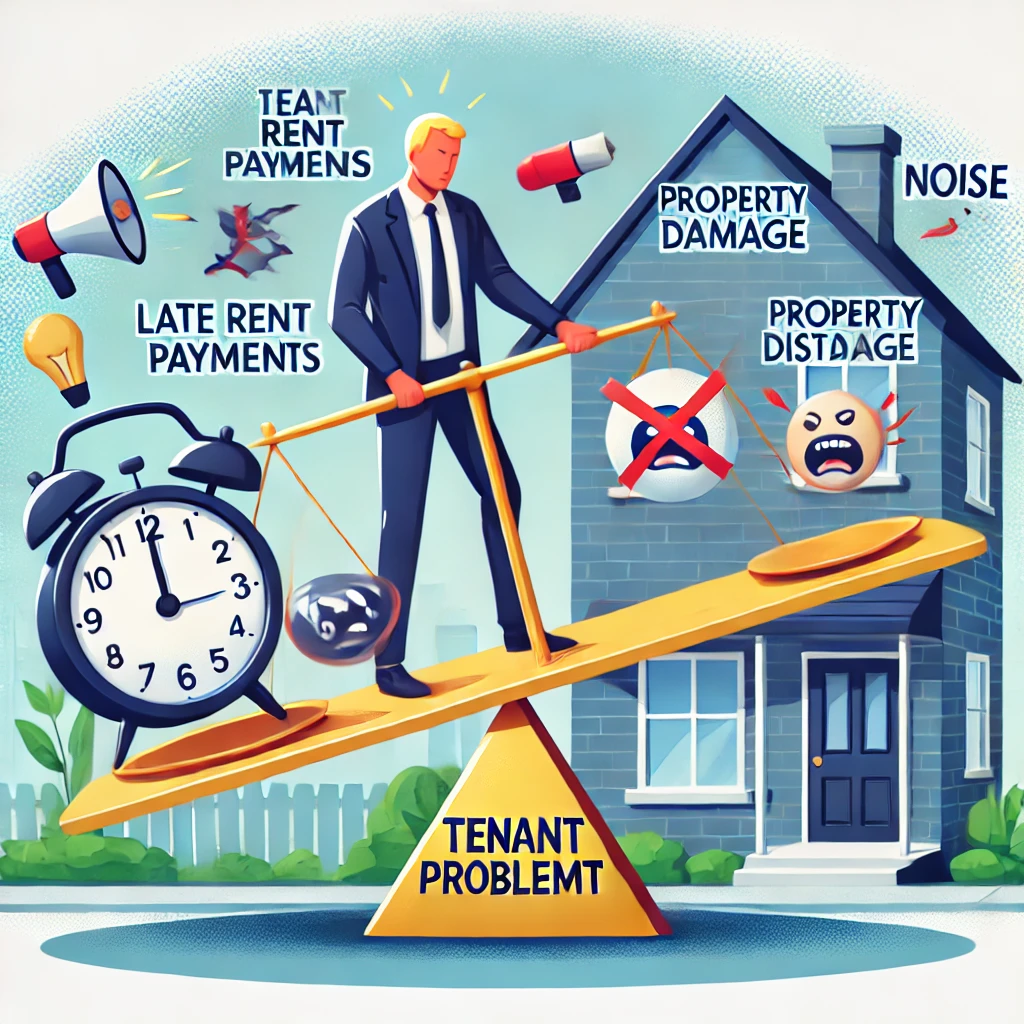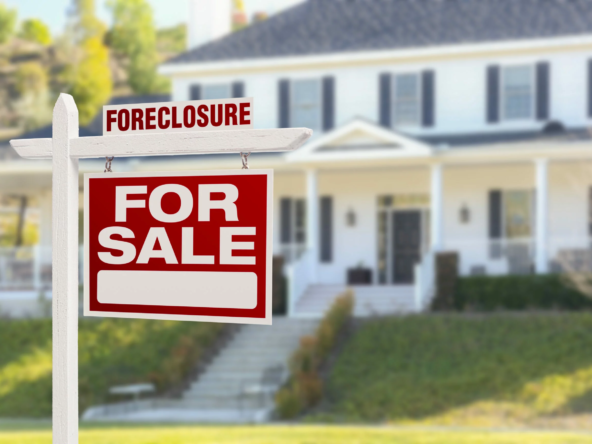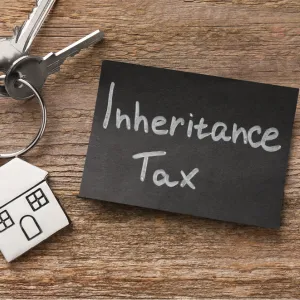As a landlord, managing tenants can often feel like a balancing act. You want to maintain a profitable property while also keeping the peace and ensuring that your tenants are happy. However, from late rent payments to damage and disruptive behavior, tenant problems are common. In this article, we will explore some of the most frequent tenant problems and provide actionable tips for dealing with them effectively.
-
Late Rent Payments
One of the most common and frustrating issues landlords face is late rent payments. Rent is due on a specific date, and tenants who fail to pay on time can cause financial strain for the property owner. Late payments disrupt the predictable cash flow, making it difficult to meet expenses like mortgages, maintenance, and utilities.
How to Handle Late Rent Payments:
- Clear Payment Terms: To avoid confusion, set clear expectations regarding payment deadlines. Include the due date in the lease agreement and emphasize any late fees for overdue payments.
- Late Fee System: Implement a structured late fee system. This will not only encourage tenants to pay on time but also hold them accountable.
- Communicate Early: If a tenant hasn’t paid on time, reach out immediately. Often, a friendly reminder is all it takes to resolve the issue.
- Payment Plans: If a tenant is struggling financially, consider offering a payment plan to help them catch up. This shows empathy but also ensures the rent is paid eventually.
- Eviction: If the late payments continue, consider initiating eviction proceedings. This should always be a last resort, but sometimes it’s necessary for both your business and the tenant’s understanding of your rules.
-
Property Damage
Property damage, whether intentional or accidental, is another common issue that landlords must deal with. This can range from small scratches on the wall to large-scale damage like broken windows, appliances, or plumbing. Damage to the property not only incurs repair costs but also reduces the overall value of the property.
How to Handle Property Damage:
- Clear Expectations: Make sure that tenants know their responsibilities for maintaining the property. Set expectations for minor repairs and routine upkeep in the lease agreement.
- Security Deposits: Collect a security deposit at the beginning of the tenancy to cover any potential damage. This deposit can be used for repairs, though it’s essential to assess damage fairly and legally.
- Routine Inspections: Conduct regular inspections to identify potential damage early. Schedule these inspections ahead of time to ensure compliance with the lease terms.
- Document Everything: Before the tenant moves in and when they move out, conduct a detailed inspection and take photos of the property. This helps in resolving disputes and identifying the cause of any damage.
-
Illegal Subletting
Subletting can create problems, especially when tenants sublet without the landlord’s approval. Illegal subletting can lead to issues like overcrowding, non-compliance with safety regulations, and unauthorized individuals living on the property.
How to Handle Illegal Subletting:
- Lease Clauses: Ensure that your lease agreement has a clause prohibiting unauthorized subletting. Make it clear that tenants must receive written consent from the landlord before subletting.
- Open Communication: If you suspect illegal subletting, address the issue promptly. A direct conversation with the tenant can often resolve the matter.
- Enforce Consequences: If tenants fail to comply with the subletting rule, consider issuing fines or initiating legal action, depending on your state’s laws.
-
Disruptive Tenants
Disruptive tenants can affect the peace and quiet of the property and its neighbors. Whether it’s excessive noise, parties, or other disturbances, this type of behavior can make the living environment unpleasant for everyone involved.
How to Handle Disruptive Tenants:
- Clear Behavior Expectations: In the lease agreement, outline the behaviors that are considered disruptive. Include specifics on noise levels, quiet hours, and any other disturbances that could impact neighbors.
- Address Issues Immediately: When you receive complaints about disruptive behavior, investigate quickly. A swift response can prevent the issue from escalating.
- Warning Letters: Start with a formal written warning. If disruptive behavior continues, further action may be necessary, including fines or even eviction.
- Mediation: Sometimes, disruptive tenants are simply unaware of their impact on others. Consider mediation or providing conflict resolution resources to address the problem.
-
Tenant Complaints
Tenant complaints are a routine part of property management. These complaints can range from minor issues like a broken appliance to more serious problems like plumbing or heating malfunctions. Addressing tenant complaints in a timely manner is crucial for tenant retention and satisfaction.
How to Handle Tenant Complaints:
- Maintain Open Communication: Let tenants know they can always come to you with complaints. Promptly acknowledging complaints fosters trust and cooperation.
- Respond Quickly: Once a complaint is made, take swift action to resolve the issue. Even if a fix is not immediately possible, keeping tenants updated on the status shows that you care.
- Professional Help: For more complex issues, like plumbing or electrical problems, hire a professional. Tenants will appreciate the quick and reliable response.
- Follow Up: After the issue is resolved, check in with the tenant to ensure they are satisfied with the solution.
-
Pets and Pet-Related Issues
While pets can be a joy, they can also lead to significant problems for landlords. Issues like property damage, noise disturbances, and tenant complaints about allergies can arise from allowing pets on the premises.
How to Handle Pet Issues:
- Pet Policy: Clearly define your pet policy in the lease agreement. If you allow pets, specify the types, sizes, and number of pets allowed, as well as any additional pet deposits or fees.
- Pet Damage: Require tenants with pets to pay a higher security deposit to cover potential pet-related damages.
- Noise Complaints: If pet noise becomes a problem, work with the tenant to find a solution, such as bringing in an animal behaviorist or restricting pet activities to certain hours.
-
Tenant Personal Issues Affecting Rent Payments
Sometimes, a tenant’s personal circumstances-like job loss or family issues-can affect their ability to pay rent on time. While this can be a difficult situation for both parties, it’s important for landlords to address it with care.
How to Handle Personal Issues:
- Open Dialogue: Speak with the tenant to understand their situation. If possible, work out a payment plan that allows them to catch up on overdue rent.
- Offer Support: Some tenants may qualify for financial assistance or government programs that can help them pay rent. Pointing them in the right direction can build goodwill.
- Know When to Let Go: If a tenant’s situation is unlikely to improve, it may be necessary to consider eviction. Always ensure that this is done legally and with respect.
-
Hoarding
Hoarding can be a serious problem that affects both the tenant’s living space and the property’s condition. It can lead to sanitation issues, damage, and even health concerns.
How to Handle Hoarding:
- Approach with Sensitivity: Hoarding is often linked to mental health issues. Approach the tenant with empathy and avoid confrontation.
- Professional Help: If necessary, suggest that the tenant seek professional help to address the issue.
- Regular Inspections: Conduct regular inspections and document the condition of the unit. If hoarding is severe, legal action may be necessary.
Conclusion
Managing tenant problems is an inevitable part of property ownership. However, with the right approach, landlords can resolve most issues without resorting to drastic measures. From clear communication and defined policies to timely interventions and empathy, effective property management is all about maintaining a balance between protecting your investment and fostering positive relationships with tenants.
By addressing issues like late payments, property damage, disruptive behavior, and illegal subletting proactively, landlords can keep their properties in good condition and their tenants satisfied. Moreover, creating a respectful, open environment where tenants feel heard and valued can significantly reduce the likelihood of tenant problems arising in the first place.




